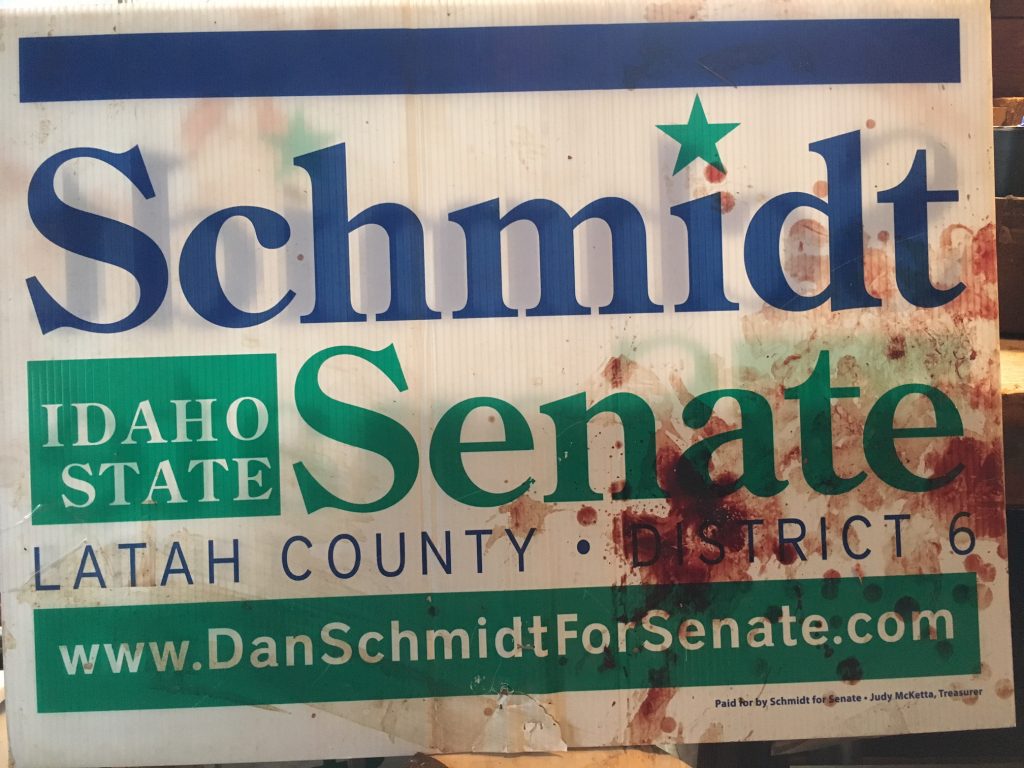
I’ve had some requests for endorsements over the years. I always wondered about the value of such, since heck, I’m an Idaho Democrat has-been. But then, that’s why people put up yard signs, isn’t it? They want to tell their neighbors and the people who drive by whom they are voting for. I guess there is merit in such activity. I have never offered a public endorsement of anyone running for office other than myself. Maybe I’m too stingy. Maybe the game of endorsements should be played more openly.
I had a Republican colleague whom I respected a few years back enter a crowded primary race for a higher office. I texted him with an imogee wink, “Let me know when I should announce my endorsement”. He knew, and I knew such an action in a Republican primary would be the kiss of death. Remember, I’m an Idaho Democrat.
When Butch Otter, in his last days in office, offered to endorse Proposition 2 for Medicaid Expansion I thought it was very generous. But I found myself wondering why he’d kept quiet the four years previous when he sat in the Governor’s chair in the statehouse, and I’d gotten beat up for advocating for such a commonsense move. Late endorsements aren’t worthless. But they aren’t courageous.
So, I’m trying to understand the current moderate Republicans plea for Democrats to register Republican and vote to “take back Idaho” in the Republican primary. Would you do the same in the general election, vote against your party if you thought the candidate your party was putting up was weak? Moreover, would you publicly endorse an Idaho Democrat? Or is such just beyond the pale?
Let’s take a look back to 2018, when Janice McGeachin was running for Lieutenant Governor. She only won the Republican crowded primary with 29% of the vote. But she easily won the general election. Her White Supremacist leanings and fringe positions were not hidden four years ago. No Idaho Republican denounced her. Maybe “taking back Idaho” means taking back the Idaho Republican Party, not voting for responsible governance.
In 2018 McGeachin’s general election opponent, an Idaho Democrat with no political experience, but lots of bona fides was Kristin Collum. What is a lieutenant governor supposed to do? Basically, it’s a less than halftime job, running the Senate when they are in session and sitting in for the governor in their absence. Republicans see it as a steppingstone to higher office. Any Idaho Democrat would see it as a sentence to be in Boise for four months a year.
For some context, let’s look at the election numbers from 2018. There were 612K ballots cast.
McGeachin got 356K. Collum got 240K. In the same election, Brad Little got 361K (5K more than McGeachin). Collum got 9K more than Little’s opponent, Paulette Jordan.
This evidence argues that there are only about 5-10K swing voters in the State of Idaho who pay attention to the candidates, not the party affiliation. Put another way, not asking for public endorsement or yard signs, but in the privacy of the secret ballot, less than 1% of Idaho voters care about the politics of the candidate over their party affiliation. Voting for Brad Little AND Janice McGeachin at the same time means you love REPUBLICANS, no matter their flavor.
Comparing the two Republican candidates, 98% of the people who voted for Brad Little for Governor in 2018 ALSO VOTED for Janice McGeachin for Lieutenant Governor.
This May, they’ll get to compare them head-to-head in a party primary (taxpayer funded) election. I say “they”, because I haven’t registered Republican, and the deadline is past. I won’t be joining in this donnybrook. But to you Republicans out there who are sending me requests for donations and pleas to register in your party, I have a simple ask. Would you consider a yard sign?
